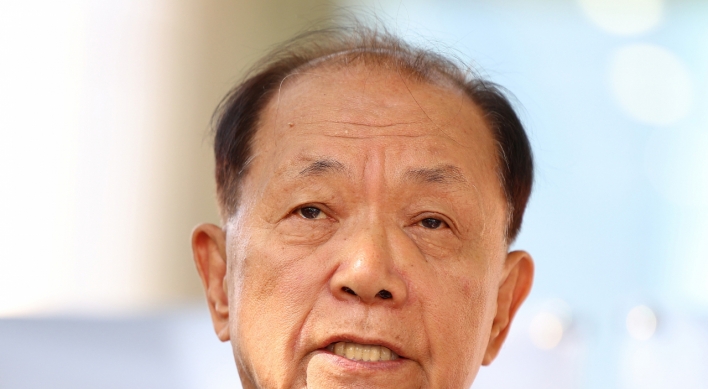[Editorial] Korea-China FTA
Local businesses should become more competitive
By Korea HeraldPublished : Nov. 11, 2014 - 19:32
The leaders of Korea and China declared a de facto conclusion of free trade negotiations between both countries during their summit in Beijing on Monday.
The declaration came four months after President Park Geun-hye and her Chinese counterpart Xi Jinping agreed to conclude a bilateral free trade agreement within this year, when they met in Seoul in July. Their agreement put pressure on negotiators from the two sides to conclude their stalled talks on the FTA, which were launched in May 2012.
The deal, reached in time for the latest summit between Park and Xi, excluded sensitive items ― agricultural products for Korea and industrial goods such as automobiles and steel for China ― from tariff elimination. This compromise, which resulted from the need to meet the year-end target, has left about 10 percent of all products traded between Korea and China out of their free trade scheme, compared with 0.1 percent and 0.4 percent in Korea’s FTAs with the U.S. and the European Union, respectively.
With some technical matters left to be settled in the coming weeks, the deal will still be the highest-level FTA China has ever signed with any country. If implemented early next year as planned, it is expected to help boost annual trade volume between Korea and China from $228.9 billion in 2013 to $300 billion in 2015. This forecast is encouraging for Korea, which has seen its exports to China, its largest trading partner, fall this year as its overall shipments abroad continue to grow. China accounted for more than a quarter of Korea’s overall exports last year, larger than the combined share of the U.S. at 11 percent and Japan at 6 percent.
The free trade accord is also expected to help Korean companies advance into China’s domestic consumer market, which is projected to grow from $4.7 trillion in 2013 to nearly $10 trillion in 2020.
To make the most of the FTA with the world’s second-largest economy, Korean businesses need to strengthen efforts to enhance their competitiveness and adapt to changes in China’s economic conditions.
The conclusion of the free trade accord may result in further boosting political and diplomatic cooperation between Korea and China.
This prospect, however, requires Seoul officials to be more careful to keep the country’s key security alliance with the U.S. intact. Korea will also have to make a difficult decision on how to respond to China’s initiatives to restructure the global economic and financial system, currently dominated by the U.S. and its allies in the West.
The declaration came four months after President Park Geun-hye and her Chinese counterpart Xi Jinping agreed to conclude a bilateral free trade agreement within this year, when they met in Seoul in July. Their agreement put pressure on negotiators from the two sides to conclude their stalled talks on the FTA, which were launched in May 2012.
The deal, reached in time for the latest summit between Park and Xi, excluded sensitive items ― agricultural products for Korea and industrial goods such as automobiles and steel for China ― from tariff elimination. This compromise, which resulted from the need to meet the year-end target, has left about 10 percent of all products traded between Korea and China out of their free trade scheme, compared with 0.1 percent and 0.4 percent in Korea’s FTAs with the U.S. and the European Union, respectively.
With some technical matters left to be settled in the coming weeks, the deal will still be the highest-level FTA China has ever signed with any country. If implemented early next year as planned, it is expected to help boost annual trade volume between Korea and China from $228.9 billion in 2013 to $300 billion in 2015. This forecast is encouraging for Korea, which has seen its exports to China, its largest trading partner, fall this year as its overall shipments abroad continue to grow. China accounted for more than a quarter of Korea’s overall exports last year, larger than the combined share of the U.S. at 11 percent and Japan at 6 percent.
The free trade accord is also expected to help Korean companies advance into China’s domestic consumer market, which is projected to grow from $4.7 trillion in 2013 to nearly $10 trillion in 2020.
To make the most of the FTA with the world’s second-largest economy, Korean businesses need to strengthen efforts to enhance their competitiveness and adapt to changes in China’s economic conditions.
The conclusion of the free trade accord may result in further boosting political and diplomatic cooperation between Korea and China.
This prospect, however, requires Seoul officials to be more careful to keep the country’s key security alliance with the U.S. intact. Korea will also have to make a difficult decision on how to respond to China’s initiatives to restructure the global economic and financial system, currently dominated by the U.S. and its allies in the West.
-
Articles by Korea Herald







![[KH Explains] No more 'Michael' at Kakao Games](http://res.heraldm.com/phpwas/restmb_idxmake.php?idx=644&simg=/content/image/2024/04/28/20240428050183_0.jpg&u=20240428180321)











![[Herald Interview] Mistakes turn into blessings in street performance, director says](http://res.heraldm.com/phpwas/restmb_idxmake.php?idx=652&simg=/content/image/2024/04/28/20240428050150_0.jpg&u=20240428174656)
